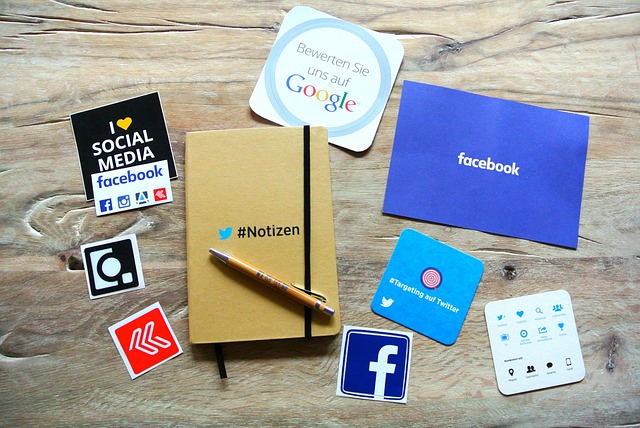In today's digital era, AI and Deep Learning are crucial for restaurant success, enhancing customer engagement through personalized email campaigns (AI email open-rate optimization) that boost open rates and click-throughs. Deep Learning also aids in strategic decisions like menu planning, pricing, and staffing by predicting demand. This data-driven approach increases profitability, reduces waste, and ensures businesses stay competitive, leveraging AI to strengthen patron connections and improve marketing ROI.
In today’s digital landscape, Artificial Intelligence (AI) and Deep Learning are transforming business strategies. This article explores how these technologies can drive growth, focusing on a crucial component: AI email open-rate optimization for restaurants. We’ll delve into understanding AI and Deep Learning, their role in enhancing email campaigns, and practical strategies to improve restaurant success rates. By leveraging the right infrastructure, businesses can unlock higher engagement and better customer relationships.
- Understanding AI and Deep Learning for Business Growth
- The Role of Infrastructure in AI Email Open-Rate Optimization
- Implementing Strategies for Restaurant Success with AI Email Campaigns
Understanding AI and Deep Learning for Business Growth

In today’s digital era, Artificial Intelligence (AI) and Deep Learning are no longer futuristic concepts but powerful tools that can significantly drive business growth, especially for sectors like restaurants. AI email open-rate optimization is a prime example of how businesses can leverage machine learning to enhance customer engagement. By analyzing vast amounts of data, including past purchases, preferences, and interactions, AI algorithms can personalize email content to increase the likelihood of customers opening and engaging with promotional messages. This tailored approach not only improves communication effectiveness but also fosters stronger customer relationships.
Moreover, Deep Learning enables restaurants to make data-driven decisions regarding menu planning, pricing strategies, and even staff allocation. By processing complex patterns in sales data, AI models can predict demand fluctuations, identify popular dishes, and optimize resources accordingly. Such insights empower restaurant managers to adapt quickly to market changes, reduce waste, and ultimately boost profitability. With the right AI infrastructure in place, businesses can stay competitive, offer enhanced experiences, and achieve sustainable growth.
The Role of Infrastructure in AI Email Open-Rate Optimization

In the realm of AI email marketing, particularly for restaurants looking to enhance their customer engagement, optimizing open rates is a game-changer. The power of deep learning infrastructure lies in its ability to analyze vast amounts of data related to customer behavior and preferences. By understanding past interactions with emails, such as open rates, click-throughs, and conversions, AI algorithms can predict and personalize content for individual recipients. This tailored approach significantly increases the likelihood of capturing a recipient’s attention, ensuring your restaurant’s email stands out in a crowded inbox.
Infrastructure plays a crucial role here by providing the computational power and data storage necessary to train and deploy these AI models efficiently. Advanced deep learning architectures can identify complex patterns and relationships within the data, enabling more precise segmentations of customer groups. For instance, restaurants can leverage AI to categorize customers based on past orders, dietary preferences, or frequency of visits. Consequently, personalized email campaigns targeting specific segments can be crafted, boosting open rates and fostering stronger connections with patrons.
Implementing Strategies for Restaurant Success with AI Email Campaigns

Implementing AI in restaurant marketing, particularly through email campaigns, offers a strategic advantage in enhancing customer engagement and driving sales. By leveraging deep learning algorithms, restaurants can analyze vast amounts of customer data to gain valuable insights into preferences, behaviors, and trends. This enables personalized and targeted email content that resonates with individual patrons, boosting the likelihood of higher open rates and click-throughs.
For instance, AI models can segment customers based on previous purchases, dietary restrictions, or even time since their last visit, allowing for tailored promotions and recommendations. Such personalization not only increases customer satisfaction but also encourages repeat business. Additionally, AI email open-rate optimization for restaurants involves intelligent scheduling, ensuring messages reach inboxes at the best times to maximize engagement. This data-driven approach can significantly improve marketing ROI and solidify a restaurant’s digital presence.
In conclusion, integrating AI and deep learning into business strategies, especially through optimized email campaigns, offers significant advantages. As demonstrated, these technologies play a pivotal role in enhancing restaurant operations by significantly improving AI email open rates. By leveraging the right infrastructure, businesses can not only increase customer engagement but also foster stronger relationships, ultimately driving growth and success in today’s competitive market.
